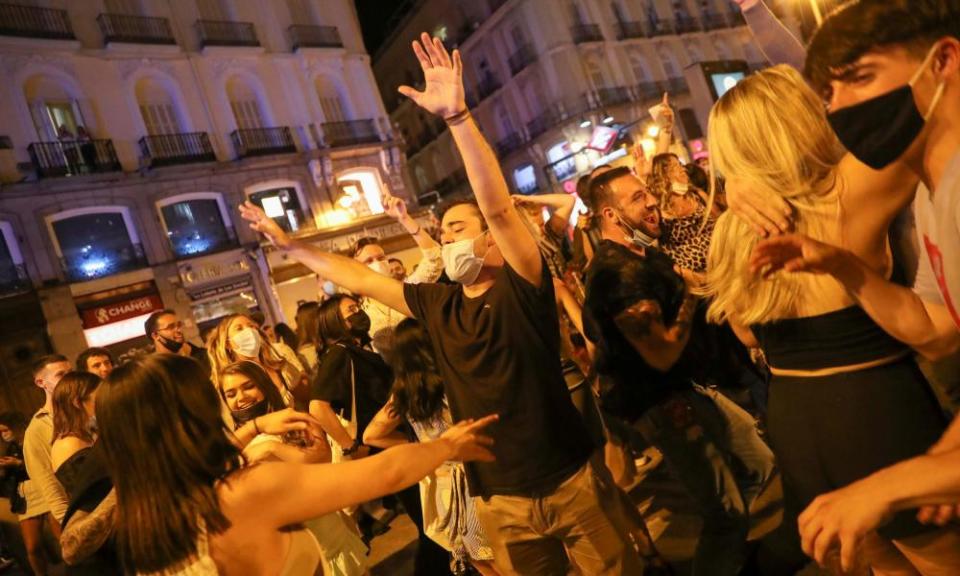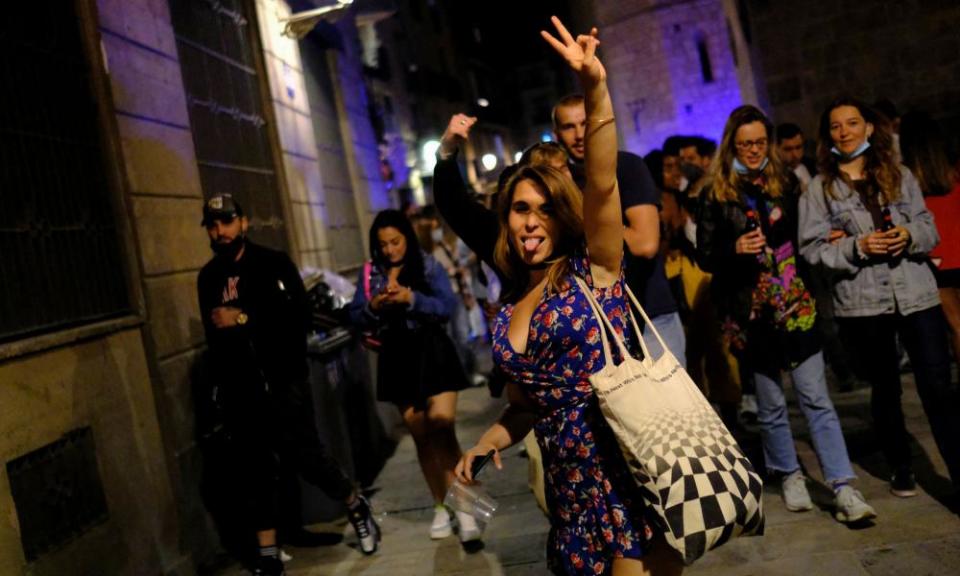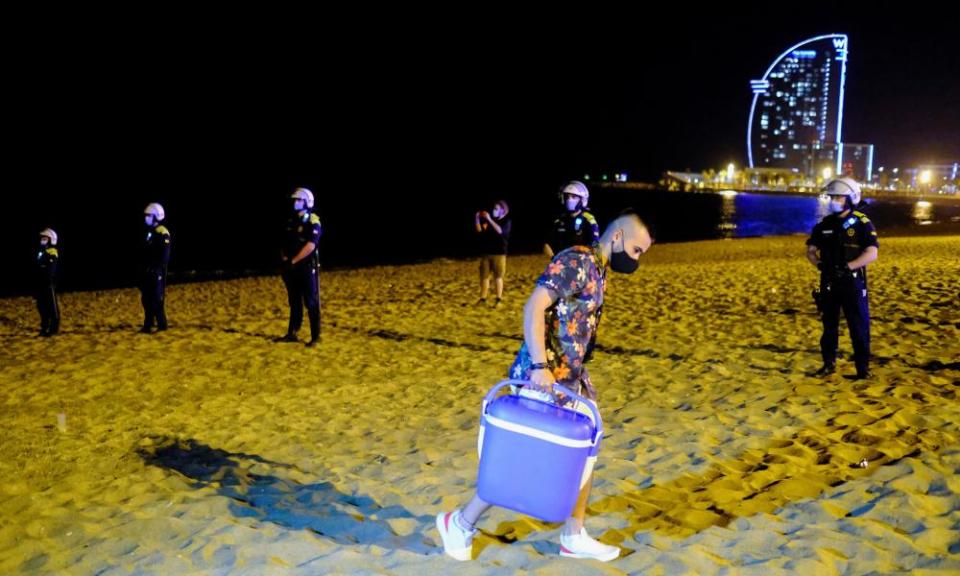Madrid mayor decries partying Spaniards as Covid lockdown ends

The mayor of Madrid has appealed for people to behave responsibly after thousands of people greeted the end of Spain’s six-month state of emergency by taking to the streets of towns and cities across the country in spontaneous celebration.
At the end of October last year, the socialist-led coalition government of the Spanish prime minister, Pedro Sánchez, declared a state of emergency that included a nationwide overnight curfew, restrictions on travelling between regions and a ban on gatherings of more than six people.
As the clock struck midnight on Saturday and the state of emergency ended, fireworks were let off in Madrid and people congregated in Puerta del Sol, the central square where revellers traditionally gather to see in the new year. There were similar impromptu celebrations in Barcelona and elsewhere.
The mayor of Madrid, José Luis Martínez-Almeida, called for people to remember the rules after scenes of drinking, jubilation and often maskless celebrations spread across the internet.
“Freedom doesn’t involve having drinking parties in the street because those drinking parties aren’t allowed in the city of Madrid,” he said on Sunday. “Each one of us needs to understand that we live in a society … and that a street-drinking party in Madrid isn’t freedom.”

Spain is battling a fourth wave of the pandemic, which has so far infected 3,567,408 people and claimed almost 79,000 lives. However, the vaccination effort is picking up speed. To date, more than 13.2 million people of Spain’s 47 million population have received a shot, and almost 6 million have had both doses of vaccine.
The central government has decided against extending the emergency powers, instead allowing regional authorities to decide which measures are necessary to fight and contain the virus. Travel between regions is once again permitted, meaning people can go on holiday or visit friends and relatives elsewhere in Spain. Facemasks remain obligatory for all, except for children under six, people with health exemptions and those exercising or swimming in pools, the sea, rivers, reservoirs or lakes – as long as social distancing can be maintained.
Sánchez has also appealed for a shared sense of responsibility to help negotiate the pandemic and its aftermath.
“The pandemic has once again shown us the value of unity,” he said in a tweet on Sunday morning. “Our shared action has been key in the face of the virus and will continue to be so as we begin the recovery.”

Fernando Simón, the head of Spain’s centre for health emergencies, has warned people not to lower their guard despite the end of the state of emergency.
“The end of the state of emergency doesn’t mean the end of control measures,” he said earlier this week. “Individual measures will have to continue to be applied and regional government will keep applying a lot of measures that will allow them to control transmission.”
While Simón said Spain’s regional governments had the necessary tools at their disposal, he added: “We can’t rule anything out when it comes to the evolution of the pandemic.”
The regional government of Madrid – whose president, Isabel Díaz Ayuso, has been a vociferous critic of the Sánchez administration’s lockdown measures – decided against imposing a new overnight curfew. It has also ruled out fining people for meeting in groups of more than six, though it has advised against household mixing.
Ayuso’ conservative government announced on Friday that bars and restaurants would be allowed to remain open for an extra hour – until midnight – and that shops would be allowed to stay open until 11pm.
However, despite the fact that the number of Covid cases per 100,000 people in the region is 317.6 against a national average of 198.6 – and the fact that 42% of Madrid’s intensive care unit beds are occupied by coronavirus patients compared with 21% across the rest of Spain – groups of people will not be fined for gathering in private places and mixing with other households.
“The [regional] health department recommends that gatherings of people in public places for family, social or leisure activities be limited to six people unless they live together,” it said in a statement. “Similarly, we advise that gatherings of people for family, social or leisure activities at home or in private spaces be limited to people in the same family or household.”
The announcement came three days after Ayuso won a snap election under the campaign slogan of libertad (freedom).

 Yahoo News
Yahoo News 